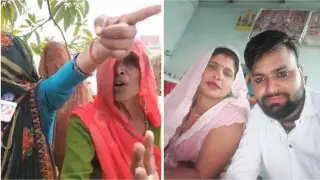
X
Appointing Dalit religious leaders as ‘Mahamandaleshwars’ is indeed a significant departure from the traditional norms prevalent in many Hindu religious institutions, where caste hierarchy has historically played a significant role.
Akhil Bhartiya Akhara Parishad for the first time on Tuesday appointed four ‘Mahamandaleshwars’ who belonged to Schedule Caste and Scheduled Tribe communities.
Shamaldas Guru Mangaldas from Ghoghawadar in Rajkot’s Gondal taluka, Shamaldas Guru Premdas from Rajpara, Shihor in Bhavnagar; Kirandas Mohandas Bapu from Hadanagar in Bhavnagar and Krushnavadan Hariprasad Maharaj from Thangadh in Surendranagar are the four religious leaders who have bestowed the title during an event in Ahmedabad on Tuesday.
The religious ceremony was witnessed by several spiritual leaders, including Mahant Ravindrapuri Maharaj, Chairman of All India Akhada Parishad; Mahant Harigiri Maharaj, General Secretary of All India Akhada Parishad, and Guardian of Juna Akhada International.
‘Mahamandaleshwar’ is also termed as ‘Superior of great or numerous monasteries.’ Some Hindu monks use it to symbolize a particular akhara or Sampradaya monastery for Sanyasis. According to the organizers, they are ranked second only by Shankaracharya, who is in charge of four Hindu mathas, or monastic institutions. Religious leaders from the so-called higher castes have traditionally occupied these positions.
As per sources, the process of choosing religious leaders for positions involved writing letters to the regional heads of all temples and Akhada Parishads in Gujarat from which they received 400 names. Out of these six were under observation for four months and then 4 names were finalized.
The move signals a progressive shift towards inclusivity and recognition of merit and spiritual leadership irrespective of caste background. It not only challenges long-standing prejudices but also opens up opportunities for marginalized communities to participate more actively in religious leadership roles. This step is not just symbolic but has the potential to bring about substantive changes in the social fabric by promoting equality and breaking down barriers that have long divided society along caste lines.













Copyright © 2025 Top Indian News
